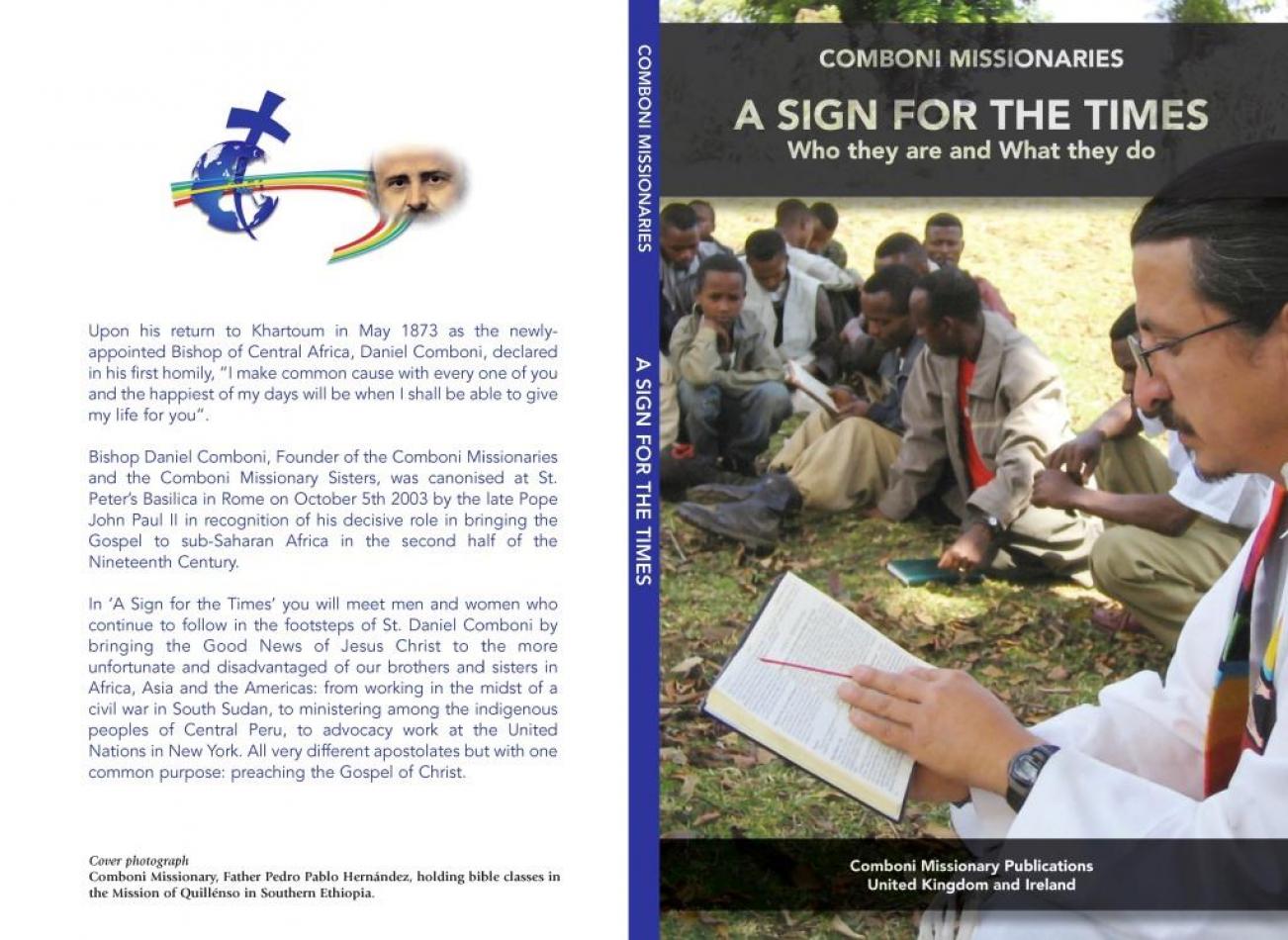Daniel Comboni
Comboni Missionare
Institutioneller Bereich
Andere Links
Newsletter
Sunday, June 30, 2019
In ‘A Sign for the Times’ you will meet men and women who continue to follow in the footsteps of St. Daniel Comboni by bringing the Good News of Jesus Christ to the more unfortunate and disadvantaged of our brothers and sisters in Africa, Asia and the Americas: from working in the midst of a civil war in South Sudan, to ministering among the indigenous peoples of Central Peru, to advocacy work at the United Nations in New York. All very different apostolates but with one common purpose: preaching the Gospel of Christ.
Upon his return to Khartoum in May 1873 as the newlyappointed Bishop of Central Africa, Daniel Comboni, declared in his first homily, “I make common cause with every one of you and the happiest of my days will be when I shall be able to give my life for you”.
Bishop Daniel Comboni, Founder of the Comboni Missionaries and the Comboni Missionary Sisters, was canonised at St. Peter’s Basilica in Rome on October 5th 2003 by the late Pope John Paul II in recognition of his decisive role in bringing the Gospel to sub-Saharan Africa in the second half of the Nineteenth Century.
In ‘A Sign for the Times’ you will meet men and women who continue to follow in the footsteps of St. Daniel Comboni by bringing the Good News of Jesus Christ to the more unfortunate and disadvantaged of our brothers and sisters in Africa, Asia and the Americas: from working in the midst of a civil war in South Sudan, to ministering among the indigenous peoples of Central Peru, to advocacy work at the United Nations in New York. All very different apostolates but with one common purpose: preaching the Gospel of Christ.
Cover photograph
Comboni Missionary, Father Pedro Pablo Hernández, holding bible classes in the Mission of Quillénso
African Proverbs
Wisdom of the People
Comboni Missionaries Publications
African Proverbs: The Precious Oil of Words:
Words in Africa carry weight, for there is strength in them: "They create and give you life". Some words are as solid as the ‘yam’ and as sweet as ‘kola’, especially those spoken by the ancestors, who have handed them down the generations for their descendants to chew. And to make them tastier, they have flavored them with the ‘oil’ of proverbs. Proverbs, according to the Igbo of Nigeria, are the ‘condiment’ with which we ‘complement’ words. Nothing reveals a people's spirit like their proverbs. Thus, one who knows Kikuyu (Kenya) or Logbara (Uganda) proverbs, knows the tradition from which they were born.
Proverbs are a mine of wisdom from which we can learn or re-affirm certain realities such as peace, social harmony, love for life, respect for the person and for property. Proverbs offer an insight into the reality in which a people live, and especially into the human heart.
In the Haussa (Nigeria) language, proverbs are called Karin magana which literally means “wrapped up words”. Those who know how to tell them have opened a little box of ‘pearls’ which contains a wisdom that throws new light on events and attitudes. But proverbs are not some sort of ‘oracle’ that claims to have the last word. As Malawian academic Patrick Kalilombe wrote: "Proverbs are a mirror in which a community can look at itself and reveal itself to others. They highlight the values, the aspirations, the worries, the behavior of people and the angle from which they see and appreciate their reality, and their response. In the proverbs we see what we call mentality or living habits at their utmost".
Reading or listening to proverbs, we see that African wisdom is not only rich and profound, but also that it is possible to collect and group such wisdom into great themes, highlighting the common points (and also the differences) between cultures.
Many proverbs spring from an identical perception of reality, although through different images. For example: “The farmer who has never left his fields thinks that his farming system is the best” (Haussa, Nigeria), and “He who has never left his village believes that no one can prepare porridge better than his mother” (Ewé, Togo).
The proverb is a way of looking at life. It is not the only way, but it has the merit of indicating a direction of travel: “One way only is no way” (Malinké, Mali).
The proverb intervenes in discourse to air a thought, to sum up public opinion, to clarify a point, to spur a debate or to bring humour to serious matters. African wisdom has been handed down from generation to generation through proverbs, re-told by the griot or storyteller, from individuals who have been defined as: “tellers of the truth”, “keepers of ancient knowledge” or “people who awake the conscience”.




